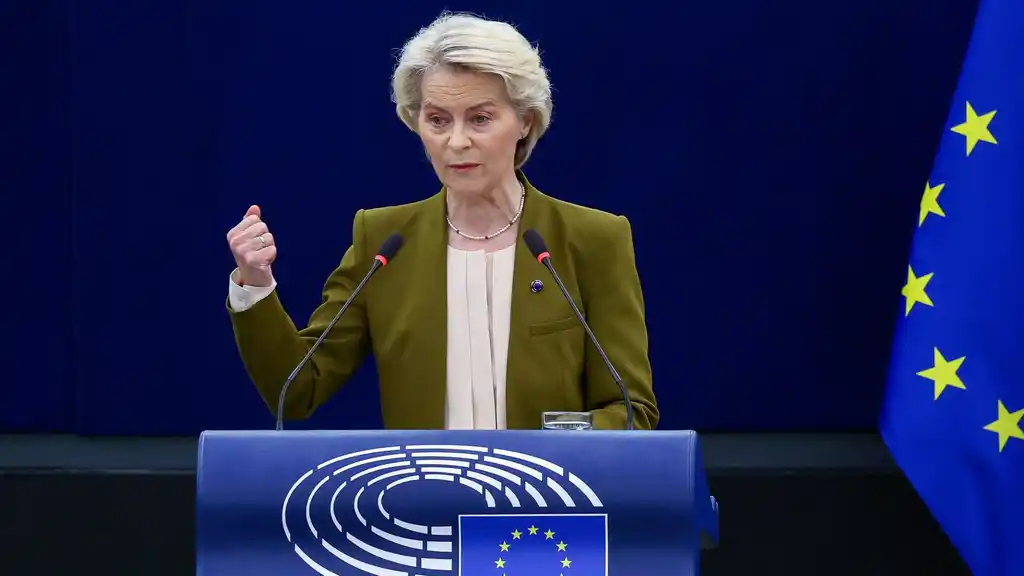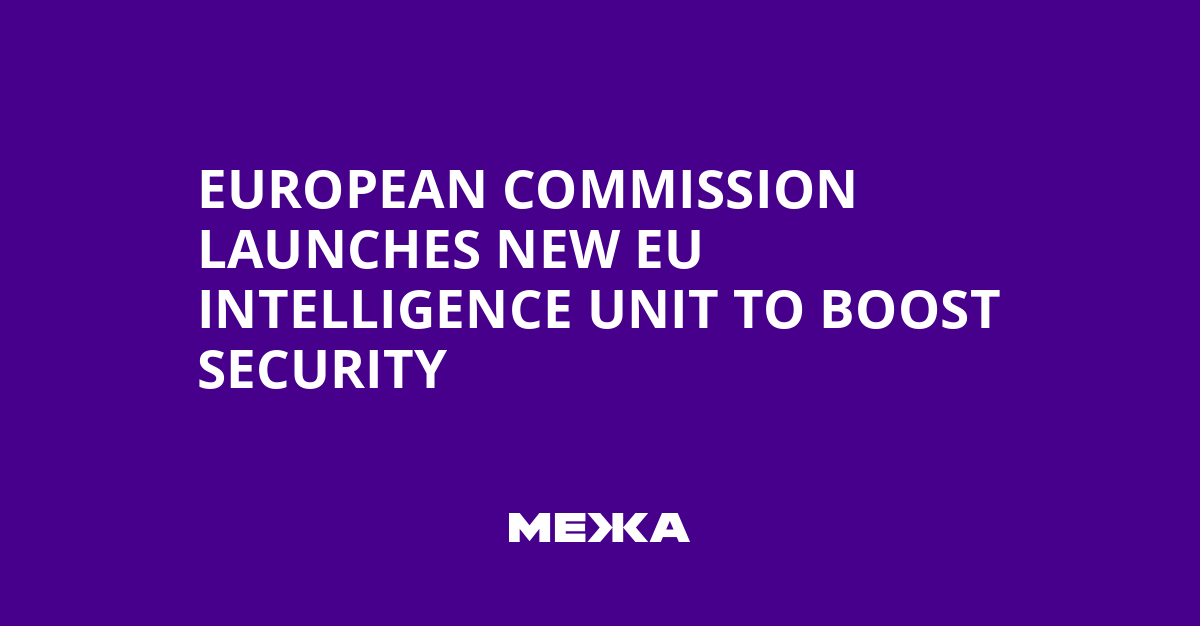
President of the European Commission Ursula von der Leyen delivers an address to the European Parliament on the state of the European Union, Strasbourg, France, September 10, 2025. REUTERS/Yves Herman
According to the Financial Times
The European Commission, led by President Ursula von der Leyen, has begun work on creating a new intelligence agency. The aim of the initiative is to try to improve the use and consolidation of information gathered by the national intelligence services of EU member states. The new unit will be formed within the Secretariat-General of the European Commission. It is planned that it will recruit officials from across the EU’s intelligence community and will collect intelligence data for common goals.
The full-scale invasion of Ukraine by Russia and warnings from U.S. President Donald Trump about the possible reduction of American security support for Europe prompted the EU to rethink its own security capabilities. This led to the launch of the continent’s largest arms rearmament program since the Cold War.
Context and Motivation
“Intelligence services of EU member states know a lot. The Commission knows a lot. We need a better way to bring all of this together and be effective and useful for partners. In intelligence, you need to give to get”
– one of the interlocutors
The creation of this body faces resistance. Senior officials of the EU’s diplomatic service, which runs the current Intelligence and Situational Center (Intcen), fear that the new unit would duplicate its role and jeopardize its future. The plan has not been officially disclosed to all 27 EU member states, which could provoke opposition from capitals due to reluctance to grant Brussels new intelligence powers.
A spokesperson for the European Commission confirmed that it is “looking at how to strengthen its security and intelligence capabilities” and is considering the creation of a dedicated center. “The concept is being developed, and discussions are ongoing. No concrete timelines have yet been set,” the spokesperson added, assuring that the center will work closely with the relevant services of the European External Action Service (EEAS).
Intelligence data sharing has always been a delicate issue for EU member states. Large powers are cautious about confidential information, and the emergence of pro-Russian governments, notably in Hungary, complicates cooperation further. However, sources note that there have long been concerns about the effectiveness of Intcen, especially in the context of Europe’s response to Russia’s hybrid warfare.
This new unit is being created following Ursula von der Leyen’s decision to form a special Security College for her commissioners. She has also taken steps to fund weapons purchases for Ukraine and to launch Project Iris2.
You might be interested in:
